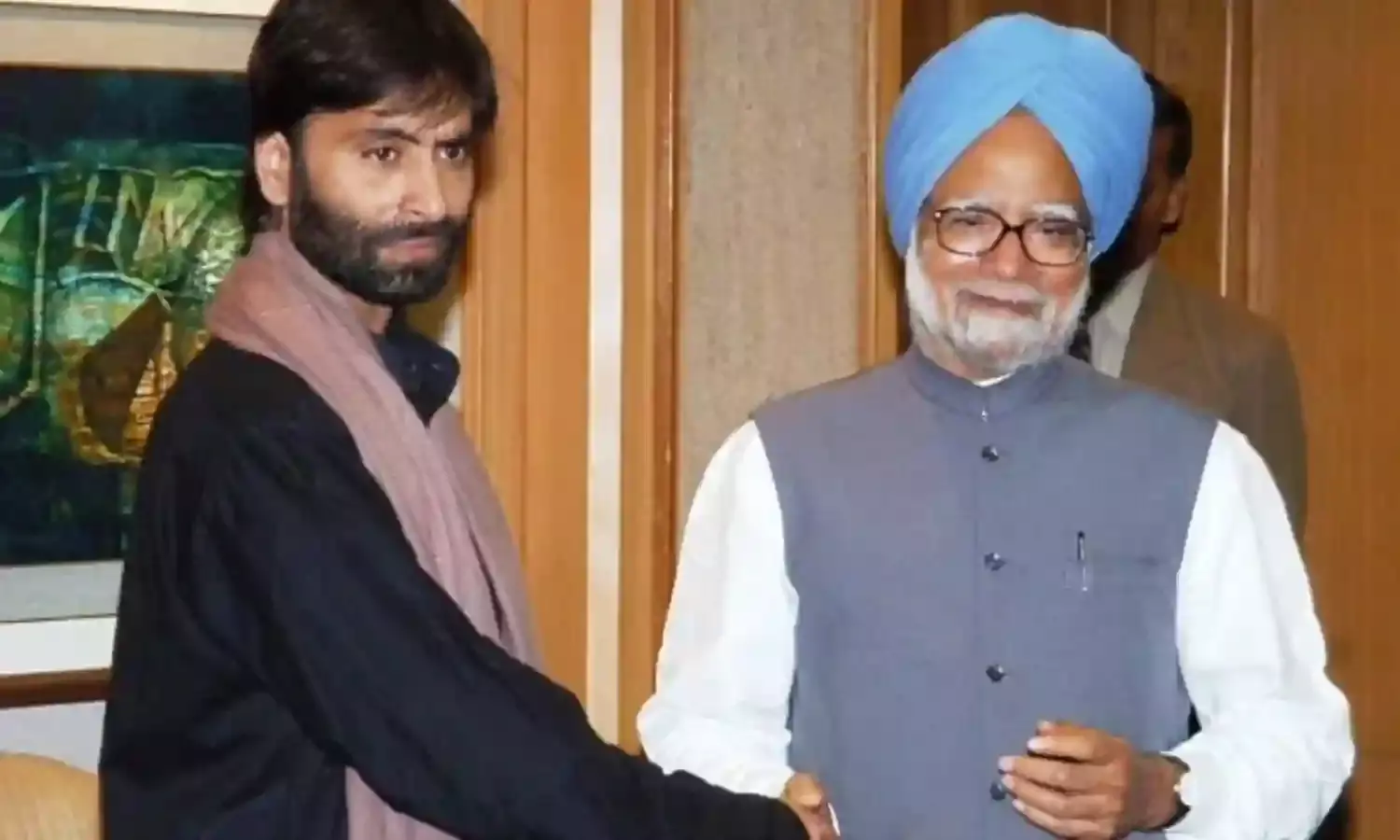Government Of India Provided Me All The Platforms To Express My Opinion- Yasin Malik While Pleading For Lenient Sentencing

In addition to the prosecution and the Amicus Curiae, the Delhi NIA Court also heard the convict Yasin Malik on the question of sentencing. One of the contentions of Yasin Malik was that the Government of India has provided him with platforms to express his opinion in India and that the Government cannot be considered to be a fool to give an opportunity to a person engaged in terrorist acts.
He had contended that though his meeting with Prime Minister Manmohan Singh was raised many times, all Prime Ministers from the time of V.P Singh till Atal Bihari Vajpayee had engaged with him and had given him a political platform.
After the hearing, Special Judge Parveen Singh yesterday sentenced Yasin Malik to life imprisonment in relation to the terror funding case.
The Special Judge had earlier convicted Yasin Malik on 19th May for offences punishable under Section 120B, 121 and 121A of the Indian Penal Code along with Section 13, 15, 17, 18, 20, 38 and 39 of the Unlawful Activities Prevention Act.
The Court had in its judgment pronounced that Yasin Malik would undergo the following sentences concurrently:
1. Under Section 120B of IPC, rigorous imprisonment of 10 years and fine of Rs. 10,000
2. Under Section 121 of IPC, life imprisonment, and a fine of Rs 10,000,
3. Under Section 121A of IPC 10 years rigorous imprisonment and fine of Rs. 10,000,
4. Under Section 13 of UAPA read with Section 120B of IPC a rigorous imprisonment of 5 years and fine of Rs. 5,000
5. Under Section 15 of UAPA as punishable Under Section 16 of UAPA read with Section 120B of IPC, a rigorous imprisonment of 10 years and a fine of Rs 10,000
6. Under Section 17 of UAPA, life imprisonment and a fine of Rs. 10,00,000
7. Under Section 18 of UAPA, rigorous imprisonment of 10 years and a fine of Rs. 10,000
8. Under Section 20 of UAPA, rigorous imprisonment of 10 years and a fine of Rs. 10,000
9. Under Section 38 of UAPA, rigorous imprisonment of 5 years and a fine of Rs. 5,000
10. Under Section 39 of UAPA, rigorous imprisonment of 5 years and a fine of Rs. 5,000
The Court had noted in the order that "the crimes for which the convict has been convicted are of very serious nature. These crimes were intended to strike at the heart of the idea of India and intended to forcefully secede Jammu and Kashmir from Union of India. The crime becomes more serious as it was committed with the assistance of foreign powers and designated terrorists. The seriousness of crime is further increased by the fact that it was committed behind the smoke screen of an alleged peaceful political movement."
The Court, while awarding the above sentence, observed that the convict had been involved in violent terrorist activities prior to 1994. 1994 was the year when Yasin Malik gave up guns and "thereafter, he was recognized as a legitimate political player which is evident by the fact that the government of India has been engaging with him and had been providing him the platforms to express his opinions".
The Court noted that Malik may have given up guns but had not reformed because he never expressed any regret for the acts of violence committed by him prior to 1994.
The Court also observed that the Yasin Malik cannot invoke Mahatma Gandhi and say that he is a follower of Gandhian principles if he himself pleads guilty and all the evidence points that large scale violence ensued. Citing the example of Chauri Chaura the Court said that, "It only took one small incident of violence at Chauri Chaura for the Mahatma to call off the entire non-cooperation movement but the convict despite the large scale of violence engulfing the valley neither condemned the violence nor withdrew his calendar of protest which he had led to the said violence."
Yasin Malik, the head of the Jammu and Kashmir Liberation Front was arrested by the National Investigation Agency in 2019 in connection to the terror funding case. It was alleged by the NIA in its FIR that Malik and other Kashmiri separatists were receiving funds from foreign sources including Hafiz Saeed of Lashkar and Syed Salahuddin of Hizb-ul-Mujahideen to cause trouble in the Kashmir Valley through stone pelting, burning down schools, and organizing protests.
The case was registered suo moto by NIA on May 30, 2017. A chargesheet was filed against 12 accused persons including two absconding accused persons namely Hafiz Mohammad Saeed, head of LeT and Yusuf Shah@ Salahuddin, head of HM, both based in Pakistan on January 18, 2018. Subsequently, the first supplementary chargesheet was filed against one accused person in January 2019 and the second supplementary chargesheet was filed against 05 persons including convicted accused Yasin Malik in October 2019.

